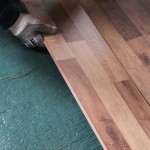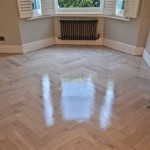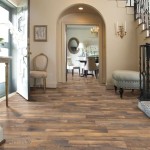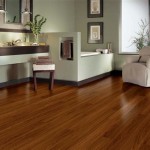Understanding Engineered Wood Flooring Vs Hardwood Costs
When renovating or building a new home, selecting the right flooring material is a crucial decision. Wood flooring, known for its beauty and durability, often tops the list. However, the world of wood flooring boasts a variety of options, each with its unique characteristics and price point. Two prominent contenders in this category are engineered wood flooring and hardwood flooring. While both offer the look and feel of real wood, understanding their differences, particularly in terms of cost, is essential for making an informed choice.
Understanding Engineered Wood Flooring
Engineered wood flooring is a multi-layered construction where a thin veneer of real hardwood is adhered to a stable core of plywood or other materials. This construction method provides several advantages. First, engineered wood is less prone to warping, cupping, and expansion compared to solid hardwood, particularly in areas with fluctuating humidity levels. Second, it offers greater stability and dimensional integrity, making it suitable for installation over concrete subfloors or in basement areas. Third, its construction allows for wider planks and unique designs that may not be achievable with solid hardwood.
Understanding Hardwood Flooring
Hardwood flooring, on the other hand, is made from a single piece of solid wood, often oak, maple, or cherry. This solid wood construction offers a timeless elegance and durability. Solid hardwood flooring can be refinished multiple times, extending its lifespan and allowing for changes in style over the years. However, its susceptibility to moisture changes and higher initial cost are factors to consider.
Cost Comparison: Engineered Wood Flooring vs Hardwood Flooring
The cost of both engineered wood flooring and hardwood flooring varies significantly depending on factors such as wood species, quality, finish, and installation. Generally, engineered wood flooring is typically less expensive than solid hardwood flooring, often by a substantial margin. This price difference arises from the cost of materials and the manufacturing processes. Engineered wood flooring utilizes a smaller amount of solid hardwood, reducing material costs and potentially simplifying the manufacturing process. However, it is important to note that the price difference can fluctuate broadly based on specific product choices.
Key Considerations for Cost
Here are some factors to consider when comparing the cost of engineered wood flooring and hardwood flooring:
Wood Species:
Exotic hardwoods, such as Brazilian cherry or walnut, command significantly higher prices than common hardwoods, such as oak or maple, for both engineered and solid wood flooring.Quality:
Higher grades of wood, often reflected in tight knots and minimal variations in grain patterns, typically come at a premium. This applies to both engineered and solid hardwood flooring.Finish:
Pre-finished engineered and solid hardwood flooring can save on installation costs, as the finish is applied at the factory. However, custom finishes and specialty staining can add to the overall cost.Installation Costs:
Installation costs can vary depending on the complexity of the project, the experience of the installer, and the region. It is essential to factor in these costs when comparing flooring options.
Beyond Cost: Choosing the Right Flooring
Ultimately, the decision between engineered wood flooring and hardwood flooring should go beyond just cost. Factors like the desired aesthetic, the level of traffic expected, and the climate of the home all play a role. Engineered wood flooring's stability and resistance to moisture make it a good option for areas with fluctuating humidity, while solid hardwood flooring's refinishability and longevity make it a worthwhile investment for long-term use. For example, in a high-traffic area with potential moisture fluctuations, engineered wood flooring might be a wiser choice. Conversely, for a formal living room or a space where longevity is critical, solid hardwood flooring may be the preferred option.
By carefully considering these factors and weighing the pros and cons of each option, homeowners can make a well-informed decision that aligns with their budget and style preferences.

Hardwood Vs Engineered Wood Flooring Which Is Better Bessemeter

Engineered Wood Vs Hardwood What S The Difference

Engineered Wood Flooring Vs Solid Forté

Hardwood Vs Engineered What S The Difference Cosmaroma

Engineered Wood Flooring Vs Solid Which Is Best Step Into Style The Ultimate Guide To

What Affects The Of Engineered Wood Flooring S

Wooden Flooring Cost Breakdown 2025 Checkatrade

Solid Vs Engineered Hardwood Flooring Olde Wood Ltd

Engineered Wood Flooring Cost Guide Derwenthorpe

Cost Of Fitting Engineered Wood Flooring And Beyond Blog
See Also







